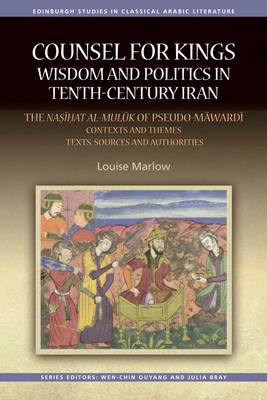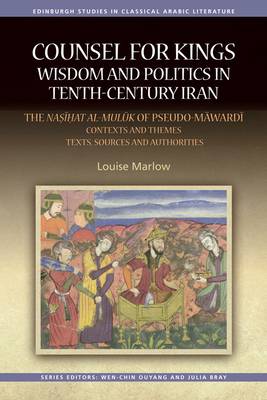
- Retrait gratuit dans votre magasin Club
- 7.000.000 titres dans notre catalogue
- Payer en toute sécurité
- Toujours un magasin près de chez vous
- Retrait gratuit dans votre magasin Club
- 7.000.0000 titres dans notre catalogue
- Payer en toute sécurité
- Toujours un magasin près de chez vous
Description
Mirrors for princes form a substantial and important genre in many pre-modern literatures. Their ostensible purpose is to advise the king; at the same time they assert that the king, if he is truly virtuous, will appreciate being reminded of the contingency of his power. The unknown author of the Counsel for Kings studied in this book wrote in a distinctive early tenth-century Iranian environment. He deploys an abundant set of cultural materials representing 'perennial wisdom' of mixed provenances, which he reinvigorates by applying them to the circumstances of his own time and place.
The first volume situates Counsel for Kings in its historical context. The second volume gives direct access to a substantial portion of the text through translation and commentary.
Spécifications
Parties prenantes
- Auteur(s) :
- Editeur:
Contenu
- Nombre de pages :
- 392
- Langue:
- Anglais
- Collection :
Caractéristiques
- EAN:
- 9780748697564
- Date de parution :
- 22-04-16
- Format:
- Coffret
- Dimensions :
- 160 mm x 241 mm
- Poids :
- 1338 g

Les avis
Nous publions uniquement les avis qui respectent les conditions requises. Consultez nos conditions pour les avis.






